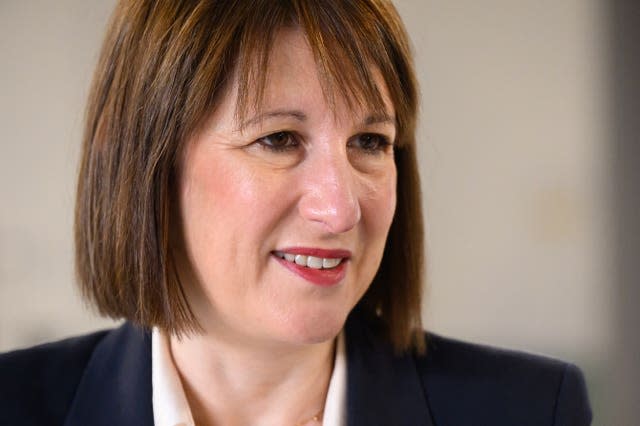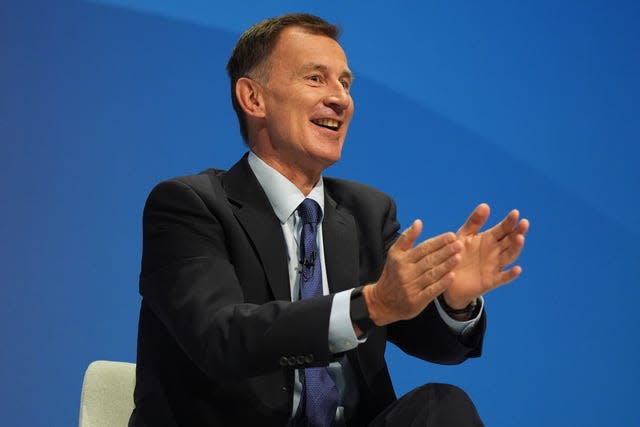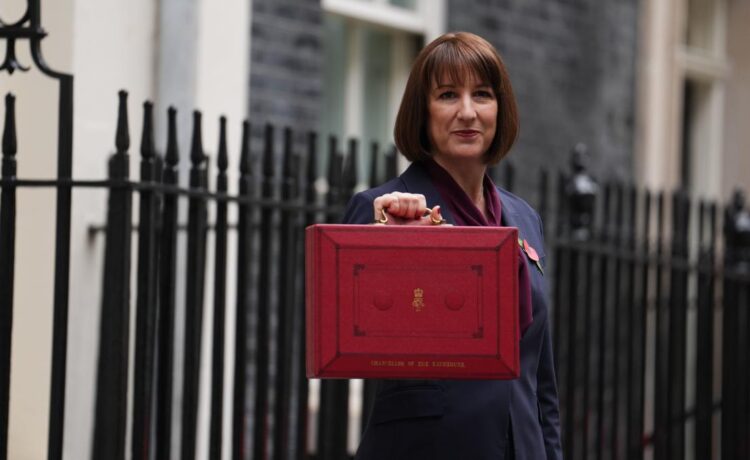Rachel Reeves will raise taxes and increase borrowing as she promises to “invest, invest, invest” to “rebuild Britain”.
The UK’s first female chancellor will deliver the first Labour budget since Alistair Darling in 2010, promising to put “more pounds in people’s pockets”.
But commitments not to increase income tax or national insurance on employees are likely to see companies hit with a greater share of the burden to help repair the nation’s finances and fund stretched public services.
Politics is about choices.
This Labour government chooses investment over decline.
— Rachel Reeves (@RachelReevesMP) October 30, 2024
Changes to borrowing rules will also allow her to pump billions into renewing the UK’s infrastructure and could fund improvements to crumbling schools, hospitals and prisons.
The Chancellor said: “Politics is about choices. This Labour government chooses investment over decline.”
Ms Reeves posed for the traditional Budget day photograph holding the Chancellor’s red box outside No 11 Downing Street before heading to Parliament.
In the Commons, she will tell MPs: “My belief in Britain burns brighter than ever. And the prize on offer to today is immense.
“More pounds in people’s pockets. An NHS that is there when you need it. An economy that is growing, creating wealth and opportunity for all.
“Because that is the only way to improve living standards.
“And the only way to drive economic growth is to invest, invest, invest. There are no shortcuts. To deliver that investment we must restore economic stability.”
Prime Minister Sir Keir Starmer said: “This is a huge day for Britain. After 14 years of decline, we will invest in our country – rebuilding our schools, hospitals and roads.
“We won’t shy away from the tough decisions to grow our economy and protect working people’s payslips. There is a brighter future ahead.”
Business leaders are nervously awaiting the Budget announcements, with increased levels of the national minimum wage and the prospect of hikes to employers’ national insurance contributions likely to add to labour costs.
A 6.7% increase in the national living wage will see it rise to £12.21 an hour next year.
John Foster, chief policy and campaigns officer at the Confederation of British Industry (CBI), said the national living wage was a “valuable tool” for protecting the incomes of the poorest in society “but with productivity stagnant, businesses will have to accommodate this increase against a challenging economic backdrop and growing pressure on their bottom line”.
“That pressure will make it increasingly difficult for firms to find the headroom to invest in the tech and innovation needed to boost productivity and deliver sustainable increases in wages.”


The CBI also warned that the expected increase in employers’ national insurance would have an impact on pay, hiring and investment.
Elsewhere in the Budget, the armed forces are in line for a £3 billion boost although this will largely be used to cover pay rises.
The funding will also be used to buy weapons, with the aim of replenishing stockpiles depleted by donations to Ukraine.
The Telegraph reported it will mean the proportion of national wealth spent on the military will decline slightly but remain roughly stable at 2.3% of gross domestic product (GDP) – Labour has pledged to increase it to 2.5% but has not set out a timetable for that.
Alongside its Budget analysis, fiscal watchdog the Office for Budget Responsibility (OBR) will publish a report on the Conservatives’ legacy in government, which is expected to account for the so-called £22 billion “black hole” in the public finances.
Shadow chancellor Jeremy Hunt is contesting the report, claiming in a letter to top civil servant Simon Case that the OBR risks “straying into political territory and failing to follow due process”.


The Budget will see:
– More funding for the NHS, including £1.5 billion for new surgical hubs and scanners and £70 million for radiotherapy machines.
– £240 million in funding for local services will be spent on helping people get back to work.
– The £2 cap on bus fares across most of England will rise to £3.
– £1.4 billion to rebuild schools, as well as a tripling of investment in free breakfast clubs, £1.8 billion for the expansion of Government-funded childcare, and £44 million to support kinship and foster carers.
The Chancellor has confirmed that taxes will rise, and the decision to avoid raising headline rates of income tax, VAT and employees’ national insurance limit Ms Reeves’ choices.
She could extend the freeze on the thresholds for the personal taxes, resulting in more people paying tax or shifting into higher bands as wages rise, a process known as “fiscal drag”.
She appears set to increase employers’ national insurance contributions and could also target capital gains tax paid on the proceeds of selling an asset.
The Chancellor has also reportedly considered changes to inheritance tax , which could include extending the number of years someone has to stay alive after passing on gifts to avoid the charge from seven to 10 years.
And the Budget could also spell the end for the Tories’ freeze on fuel duty, which was held at the same level between 2010 and 2022, and then cut by 5p to 52.95p per litre of unleaded, where it remains.

